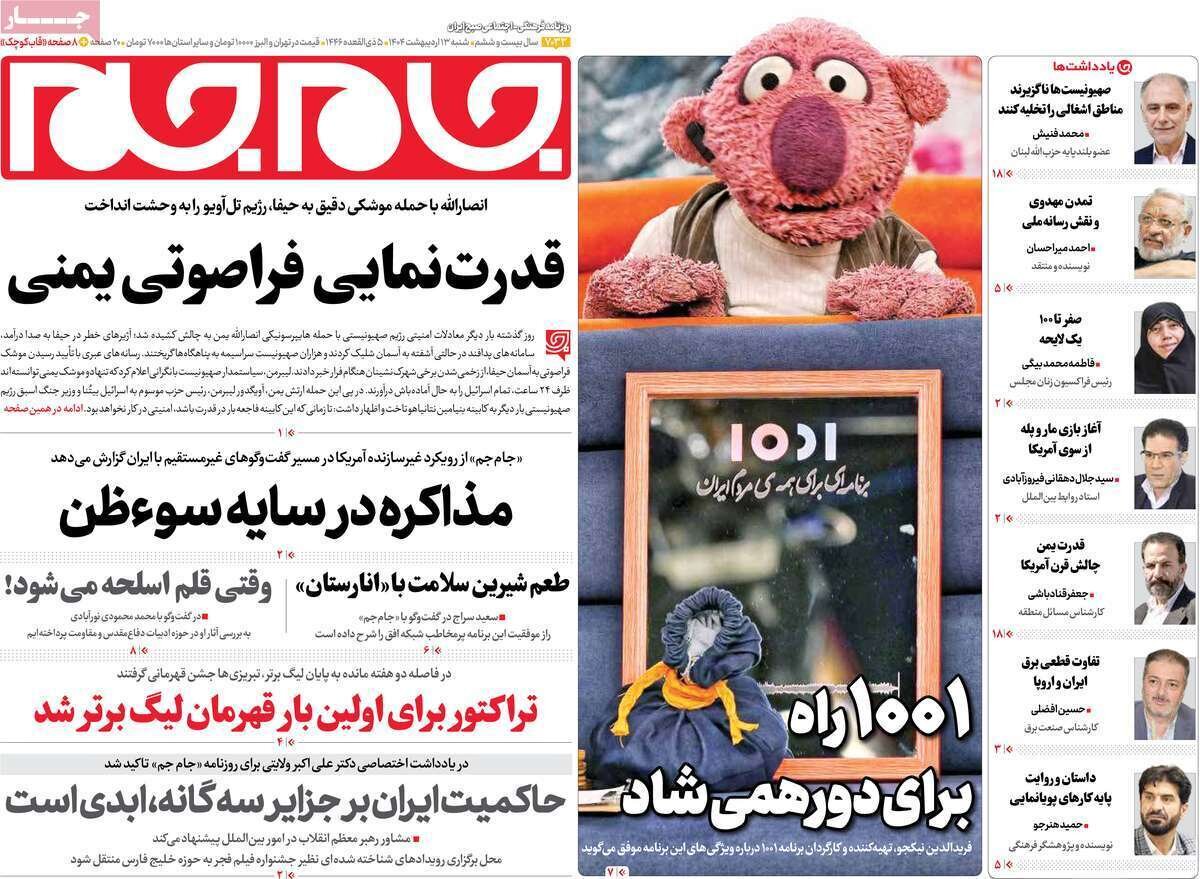What does Europe want from the negotiations?

TEHRAN - Jam-e-Jam wrote about the United States’ exclusion of Europeans from the nuclear negotiations: After the start of a new round of talks between Tehran and Washington on the Iran nuclear issue, one point that received intense attention was the exclusion of European parties from the negotiations.
Since the start of the indirect talks between Iran and the United States, the European troika has felt that in many important global issues, the United States has sidelined them and that their international interests are not being taken into account. Therefore, during the negotiations, they tried to influence the negotiation process by expressing different opinions so that they could first secure their political and security considerations and then continue to insist on their position as the main players in shaping international mechanisms. According to Reuters, the European diplomats indicated that despite initial hesitation, the E3 decided it was in their interest to maintain dialogue with Iran and reaffirm their stance on a potential new nuclear agreement. (They took such a position after Iran said it is set to hold discussions with Britain, France, and Germany on Friday (May 2) in Rome, just ahead of a scheduled round of negotiations with the United States. However, the talks have been postponed without setting a specific date).
Siasat-e-Rooz: If talks are stopped, US will be responsible
Siasat-e-Rooz dedicated its editorial to a delay in the Iran-U.S. talks and said: The postponement of the indirect talks followed a demand from the United States. It seems that Trump is unpredictable in a way that he suddenly adopts a new position and announces a new decision. Given his personality, a stable and lasting result cannot be achieved. The Leader of the Islamic Revolution is well aware of the behavior of the Americans and that is why he has said clearly that the United States cannot be trusted. Many conflicts within the United States have caused serious disagreements about the Iran-U.S. talks. Of course, the role of the Zionist regime, especially as Netanyahu is working intensively to abort the talks, should be taken seriously. Given the “conditions” put forward by the United States for negotiations, if the negotiations are stopped, the United States will be the main culprit because the United States has shown similar behavior in previous negotiations (and finally it exited from the 2015 nuclear deal. Speaking to Fox News, Secretary of State and now National Security Advisor Marco Rubio stated that in a deal with the United States, Iran will be allowed to maintain its nuclear energy program, but that it must agree to halt the enrichment of uranium, only importing enriched uranium needed for its reactors.)
Arman-e-Melli: Why does Trump impose oil sanctions on Iran during negotiations?
Arman-e-Melli examined Trump's dual behavior in an interview with political expert and former diplomat Sabah Zangeneh. He said: Deep changes are taking place in the United States regarding foreign policy. The announcement of oil sanctions against Iran shows that the U.S. President's behavioral contradiction is still at work. It is a continuation of maximum sanctions. It seems that some in the United States are also seeking such measures against Iran. Of course, it should be taken into account that these sanctions are primarily aimed at the buyers of the Iranian products, which mainly include China and some other countries. In other words, these sanctions do not just target Iran, which should be examined from several aspects. First, it is a multilateral move against Beijing that has been pursued by the United States for a long time. The second reason is that Trump is trying to monopolize the market for the United States, and Americans are trying to expand the domain of their business activities by eliminating Iranian products and making China dependent on the United States.
Donya-e-Eqtesad: Importance of Persian Gulf in International Political Economy
Donya-e-Eqtesad wrote about the importance of the Persian Gulf in the international economy. The paper said: The dependence of major powers on Persian Gulf energy riches has put the Persian Gulf at the center of developments. The Persian Gulf's strategic importance stems from its vast energy resources and its function as a critical transit hub for global energy markets. The evolving role of the Persian Gulf Cooperation Council (GCC) countries—Saudi Arabia, the UAE, and Qatar—has positioned them as influential players in international affairs. The regional leaders are shifting their approach from traditional neighborly relations to broader economic and diplomatic engagements. This includes mediation efforts between Iran and the U.S., as well as initiatives aimed at resolving regional conflicts through macro-economic projects. Strengthening cooperation between Iran and its southern Persian Gulf neighbors could pave the way for new economic and diplomatic frameworks.
Leave a Comment